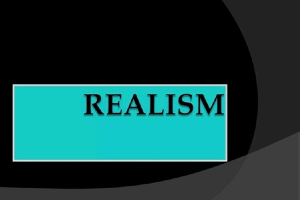The 2021 budget, themed “Completion, Consolidation, and Continuation” and presented by the interim Finance Minister Osei Kyei-Mensah-Bonsu to the House of Parliament revealed a list of new tax policies and revisions of existing ones which will impact the finances of individuals and businesses.
Stemming from the unprecedented rise of the Coronavirus pandemic and its associated harsh realities to economic life, such as the ballooning of the public debt to GH¢291.6 billion, stretching of the health budget beyond the annual target, and impacting the fiscal economy to the tune of GH¢19.7 billion, the government plans to introduce the following taxes to help in rebuilding the economy.
*A one percentage point increase in the National Health Insurance Levy and a one percentage point increase in the VAT Flat Rate.
*An Energy Sector Recovery Levy of 20 pesewas per litre on the price of petrol and diesel.
*A Sanitation and Pollution Levy of 10 pesewas per litre of petrol and diesel.
Revision of road tolls
*A financial sector cleanup levy of 5% on profit-before-tax on banks
*Introduction of new gaming policy
*Revision of road tolls.
Budget 2021- VAT and NHIL
“A COVID-19 Health Levy of a one percentage point increase in the National Health Insurance Levy and a one percentage point increase in the VAT Flat Rate to support expenditures related to COVID-19,” read the 2021 budget by Osei Kyei-Mensah Bonsu.
He mentioned that these expenditures include among other things, vaccine procurement, the establishment of 14 medical waste facilities, implementation of 33 health projects, support of the Agenda 111 initiative, and recruitment of health care professionals.
Purpose of the levy
The purpose of the levy, according to Osei Kyei-Mensah-Bonsu is not only to support the above-listed projects but to support COVID-19 related expenditures.
The minister further stated that the fiscal impact of the coronavirus pandemic on the Ghanaian economy was GH¢19.7 billion with the budget designated to health far exceeding the annual health budget. This levy will thus help mitigate the effect.
Impact on individuals, businesses, and government
Ghana’s tax composition include:
*The standard VAT rate of 12.5%, except for supplies of a wholesaler or retailer of goods, which are taxed at a total flat rate of 3%.
*The National Health Insurance Levy (NHIL) of 2.5% levy on goods and services collected under the Value Added Tax (VAT). It’s worthy to note that the NHIL largely funds the National Health Insurance Scheme.
*The GetFund Levy of 2.5%.
The government plans to increase the VAT flat rate and NHIL by one percentage point which will mean an increase in the VAT flat rate from the current 3% to 4% while that of the NHIL will increase from 2.5% to 3.5%.
An important impact on the rise in the levy on VAT and NHIL will be an increase in retail prices should suppliers opt to pass the increment to consumers. Should suppliers pass the increment to buyers/consumers, there will be a reduction in the purchasing value of the money consumers hold hence, increasing consumer expenditure.
For instance, a good that could be supplied at a cost of GH¢40.00 will now cost GH¢41.6 when the VAT flat rate of 4% is applied.
With respect to the government, the increment would increase its revenue base and aid in lowering its fiscal deficit and thus help contribute to lowering the National debt.
Budget 2021 – Energy Sector Recovery Levy and Sanitation Levy
The government plans to introduce the Energy Sector Recovery Levy of 20 pesewas per litre on the price of petrol and diesel. The government also plans to introduce a Sanitation and Pollution Levy of 10 pesewas per litre of petrol and diesel.
The Energy Sector Recovery Levy has been necessitated “due to the difficulties faced by our economy arising from higher excess capacity payments in the energy sector, which have not yet reflected in electricity tariffs.”
The Sanitation and Pollution levy is also being introduced to ensure “sustainable sanitation management, improve the quality of life and reduce the number of deaths and diseases from poor sanitation.”
According to the interim Finance Minister, given existing world crude oil prices, the implementation of the proposed levies as well as to pay for excess capacity charges will result in a 5.7% increase in petroleum prices at the pump.
What it means for your pocket
Currently, fuel prices average around GH¢5.36 per litre. Given the introduction of the levies which will see a 5.7% rise in petroleum prices, Ghanaians must expect to pay more for fuel at the price of GH¢5.67 per litre and since our transportation system is heavily reliant on fuel, transport operators will pass on the extra charges that they pay for fuel to consumers thereby increasing consumer expenditure.
Moreover, with the increase in transport fares, food producers/distributors and middlemen who transport food items from the hinterlands and neighbouring countries will also pass on the extra charges they pay in transporting such food items to the consumer. This will lead to further increases in the prices of food items, thereby increasing the expenditure of consumers.
Budget 2021- Financial sector cleanup levy
From mid-2017 to end-December 2018, The Bank of Ghana embarked on a banking sector clean-up, recapitalization, and other regulatory reforms to promote the safety, soundness, and stability of the financial system to support economic growth.
During the cleanup, there was a crackdown on poor business practices and weak capital positions in the sector. It subsequently led to hundreds of license withdrawals, some mergers, and exits from the sector.
The aftermath of BoG’s exercise has led to a fewer number of well-capitalized banks and microfinance institutions. The financial sector is now in good health. This is evident in some key metrics like total assets and deposit growth. For instance, deposit growth moved from 12.7% in 2017 to 17.3% and 22.2% in 2018 and 2019 respectively.
The budget stated that the financial sector mop-up cost the government GHS21 billion. To “defray outstanding commitments” stemming from the cleanup, the government will be imposing a 5% levy on the profit of banks before tax is deducted. This means commercial banks will have to make provision for the levy in their accounting books which will impact the overall net profit of commercial banks.
Road toll
In 2019, the Sector Minister of the Ministry of Roads and Highways, Amoako Attah, called for the increment of road tolls to enhance revenue mobilization. According to him, after a survey, his Ministry became aware of the fact that “we are losing a minimum of 40%, maximum 80% revenue from our toll booths.”
Current toll rates are:
*saloon cars – 50Gp, while
*pick-ups and light buses – GH¢1, from the 8Gp they used to pay.
*heavy buses and light goods truck (two axles) – GH¢1.50;
*medium goods truck (three axles) – GH¢2;
*heavy goods truck (four axles) – GH¢2
*heavy goods truck (five or more axles) – GH¢2.50
Though the budget statement did not indicate any revised figures, transport operators, commercial and private drivers should expect an increment in road tolls.
Gaming policy
Regulated by the Ghana Gaming Commission the gaming industry is fast expanding and becoming a profitable business venture. The industry comprises of
*Casinos
*Sports Betting
*Route Operation (Slot Machines)
*Importation and installation of Gaming Equipment
*Promotional Gaming (Games of Chance)
*Betting on Horse Racing
*Scratch Cards
*Bingo
According to the budget statement, the government loses GH¢300million annually in revenue due to leakages in the sector. The government, therefore, plans to develop policies that will ensure efficient and effective mobilization of revenue from the sector.
All in all, these tax initiatives proposed by the government should aid the government in mobilizing additional revenue to aid in the swift recovery of the economy given the devastating impact of the coronavirus. On the other hand, individuals and businesses will in the coming months’ experience an increase in expenditure as a result of the new tax proposals.
Business News of Monday, 22 March 2021
Source: goldstreetbusiness.com













